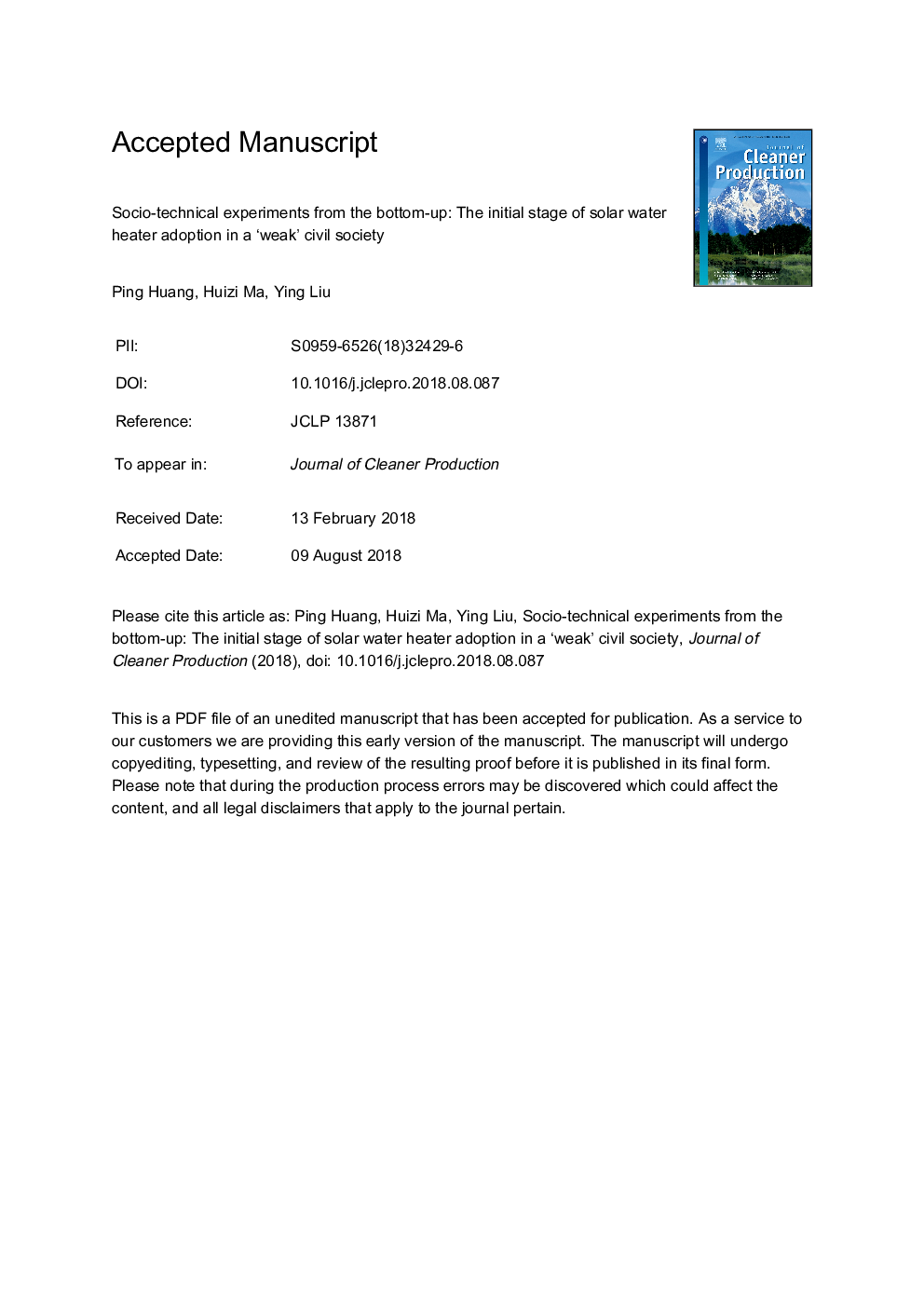| Article ID | Journal | Published Year | Pages | File Type |
|---|---|---|---|---|
| 8092908 | Journal of Cleaner Production | 2018 | 16 Pages |
Abstract
Recent years have witnessed the proliferation of urban experiments responding to low-carbon and sustainable transitions. There is a tendency of prioritizing the role of government interventions in transitions while neglecting the agency of other parties. This tendency is especially true in China, where an authoritarian governance dominates the transition process. The Rizhao case, however, exhibited a distinct bottom-up pattern in the early-stage development of solar water heater (SWH) technology, when both the civil society and the market were still immature. Through this rare case of urban energy transitions in China, this study looks into the sociotechnical experiments from the bottom-up. The study shows that before the intervention of local governments, a niche market of SWH technology was established and consolidated successfully in Rizhao through the mutual effects of both resident-led social experimentation and entrepreneur-led technological experimentation. The study further uncovers that in a less-developed civil society in China, the diffusion of novel innovations relied heavily on interpersonal social networks.
Related Topics
Physical Sciences and Engineering
Energy
Renewable Energy, Sustainability and the Environment
Authors
Ping Huang, Huizi Ma, Ying Liu,
